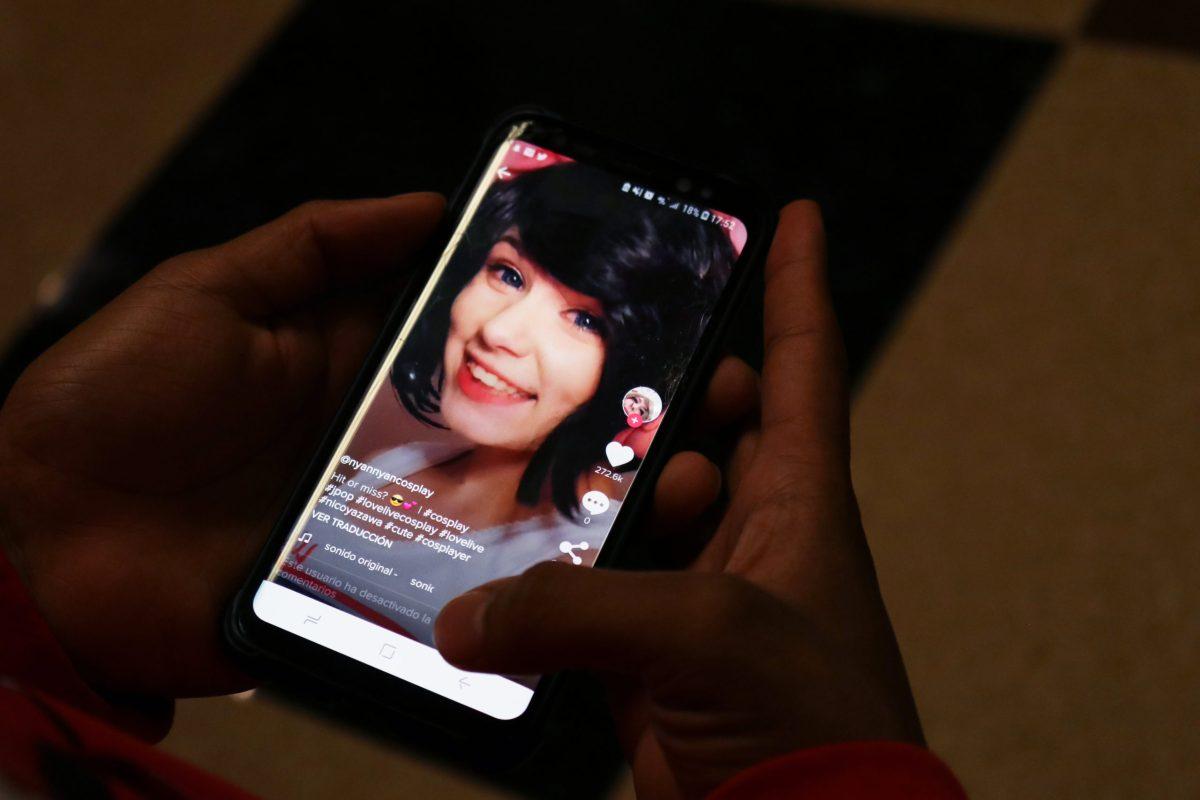Photo Illustration by Hunter Franklin ’19 | Brophy student watching popular Tik Tok-er, ryannyancosplay, in her iconic “Hit or Miss” video.
By Ryan Loo ’21
THE ROUNDUP
Tik Tok took the United States by storm on Aug. 2 when the Chinese company, ByteDance, merged with the popular lip-syncing app, Musical.ly. It became an immediate hit, quickly claiming the title of the Apple Store’s most downloaded app in the world in a matter of months.
However, as is the nature of the beast, Tik Tok’s monumental rise was accompanied by controversy. The internet community has a love-hate relationship with Tik Tok. On one hand, Tik Tok is a goldmine of content for fresh, new memes, while on the other hand, is also perceived as a growing tumor that needs to be irradiated until it bursts.
Ben Gilligan ’22 expresses one of the more lenient perceptions on the app, “[Tik Tok] is a masterful app. I feel like it has really changed the game.” However, despite Gilligan’s enjoyment of Tik Tok content, he warns that “Tik Tok probably shouldn’t be used, it should just be observed.”
Nevertheless, most students don’t share Gilligan’s leniency. Instead, the app is divided into two polar opposites – the Tik Tok enthusiasts and the Tik Tok loathers.
On one hand, students like Griffin Fanger ’22 love the app for its creative content and entertainment. “Tik Tok is an amazing app,” Fanger says. He continues, “I like to post videos of me or my friends or other people dancing to music.”
Fanger acts as a good example for why many should use this rapidly growing social media app. Tik Tok, if used properly, can be used as a free outlet of creativity for people to enjoy in matters of seconds. Using it alone or with friends, Tik Tok is an enjoyable app for any occasion.
However, some argue that Tik Tok’s free range for creative expression works in theory, but once in practice, is a whole different story.
Nick Sadegi ’21 debates that Tik Tok is doing more bad than good by instilling immoral values in students today. Sadegi argues, “[Tik Tok] is really unnecessary and a waste of time; ultimately, it promotes things that shouldn’t be promoted in our culture, and especially not Brophy.”
He elaborates, “It promotes inappropriate language and innuendoes. These videos are going to come back to bite you later on — it’s not going to be something that you’re going to look back on with pride and say, ‘I was a part of that.’”
Noah Whetstone ’20 expresses one of the most recent, inappropriate situations that has been raging within the confines of Tik Tok. This controversial case has been dubbed by the online community as “The Tik Tok Furry War.”
This self-proclaimed battle between gamers and furries (a niche group whose interests lie in anthropomorphic animal characters who have human personalities, traits and characteristics) rages on as the two groups battle for Tik Tok dominance.
“The Furry War has made Tik Tok a garbage app filled with stupid memes,” Whetstone explained. “This is a ‘war’ between two groups of equally cringy people. They fight each other by sharing Tik Toks with one another, threatening the opposing group, then consider it a war.”
Will Warner ’21 suspects that occurrences like the Tik Tok Furry War will result in the app’s own demise. Though Warner believes that Tik Tok should be used to fool around and act stupid on, he believes that “sometimes, it’s getting a little extreme.”
“By the end of the month, everyone is going to hate [Tik Tok],” Warnerhypothesized. If Warner’s hypothesis holds true, then it’s only a matter of time until the natural cycle of old memes perishing and new memes rising takes hold and leaves Tik Tok in the graveyard of fallen social media apps.





















